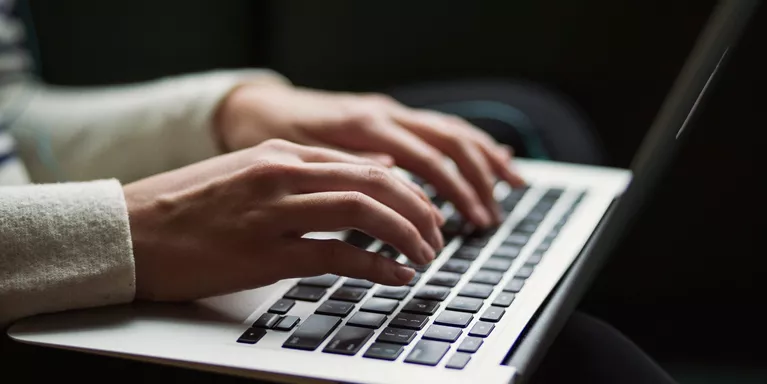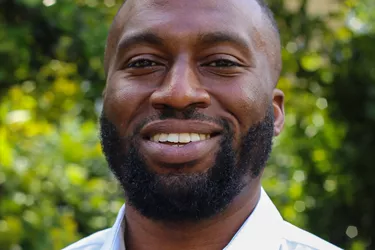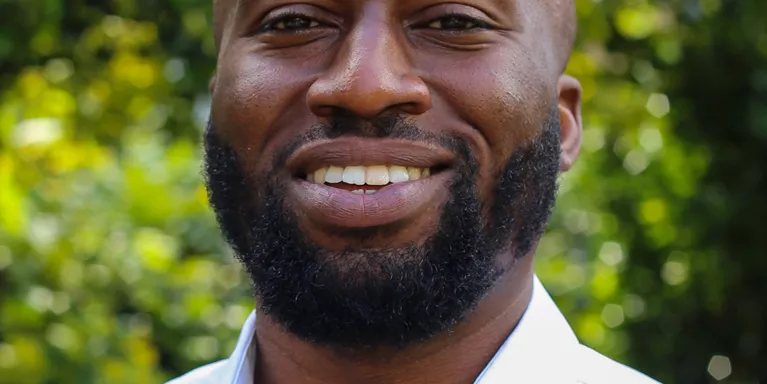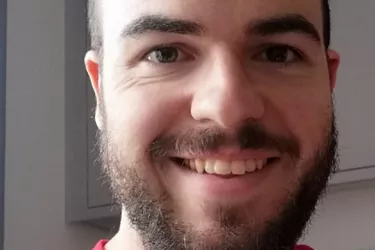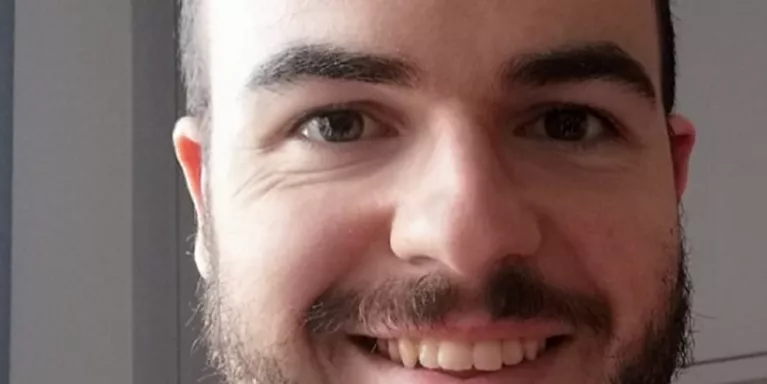I scaled the heights for my mental health
After a schizoaffective episode that could have cost him his life, Patrick jumped at the opportunity of a physical challenge.
The first time I heard the term schizoaffective disorder was when the psychiatrist gave me my diagnosis. It was a month after I had been sectioned. I didn't feel comfortable asking him questions but instead went to Dr Google looking for answers. The Mind website explained things I was scared to ask. Is it a one-off, will I ever feel like myself again and what exactly is a schizoaffective disorder?
I experienced my first and so far only schizoaffective episode 5 years ago and it will forever be ingrained in my memory. I recalled the day many times.
- What if I had gone outside for a jog or went to the gym?
- What if I had told my friends and family what I was really feeling/thinking instead of lying and saying what I thought they wanted to hear?
- What If I had taken the medication prescribed by the GP earlier that day when I went in to see a doctor about my stress?
Calling the police
A 20-something black man, I had managed to avoid the police my whole life until this day. My mother asked me to take medication prescribed by the doctor, which I refused. I was shouting and aggressive believing she was trying to harm me. I had delusions that my family and my friends were conspiring against me. I also had a bad sleeping pattern, was spending excessively and found myself acting differently. Now I know these are symptoms of mania.
My mother was scared and worried for my safety, so she called the police. The Black Lives Matter protests in the US had been going on for three years at this point and I was particularly conscious of police brutality, watching videos and reading the news regularly.
When police arrived at my home it was a fight or flight moment, and flight was the option I took.
“I scaled down the building from the fourth-floor balcony. It was like I was living the video game Assassin’s Creed.”
Unfortunately, I lived on the 4th floor. In a state of mania, I scaled down the building from the 4th-floor balcony to the ground floor. At the time it was like I was living the video game Assassin’s Creed, not realising the danger I was in. I made it to the ground floor and ran.
After a few hours hiding in a local park and with my adrenaline coming down. I walked into the local police station, realising that was my only option and my family and friends must be looking for me. The police officer at the desk said “Oh it's you, Mr Bourne Identity”. At that moment I had a sense of pride that I’d escaped, but the reality of it hit me days later when I realised how lucky I was to be alive.
At the time I did not know people from ethnic minorities are disproportionately sectioned and I had never heard of black men in mental health crises dying due to excessive force by police. In the last year I have read about:
- Former Premier League footballer Dalian Atkinson dying after being tasered outside his father’s house three times and kicked in the head twice when suffering a mental breakdown in 2016. Police officer Benjamin Monk was found guilty of manslaughter and jailed for eight years in an historic verdict in 2021.
- Kevin Clarke, a 35-year-old black man who died in 2018 after being restrained by police in London. He was experiencing schizophrenia and paranoia.
- Leon Briggs, a 39-year-old man described as a loving brother and father, died in police custody in Luton 2013 when experiencing a psychotic disorder.
It’s clear reform of the Mental Health Act is needed so black people dealing with mental health crises are treated better.
Leading up to this day of my schizoaffective episode, I was extremely stressed. I kept my worries inside and felt like I had to be "the man" by dealing with it by myself.
Understanding my mental fragility
Looking after my mental health was never part of my life until that day. I owe a lot to my schizoaffective episode. It forced me to understand how fragile the mind is, how important it is to look after your mental health and speaking about how you feel and not keeping it inside.
I've spoken at conferences/events, about my mental health and joined groups like The Mandem which exists digitally and physically to foster a community of men that support and celebrate each other.
Openly speaking to men, Black men in particular, about topics like 'finding a therapist' has been a blessing.
When the Chartered Institute of Housing president Aileen Evans asked for support in raising money for Mind and Harry’s Pals (a new initiative set up to provide emotional support to parents who have severely ill or disabled children) I jumped at the opportunity.
The fact that I had to take part in the 24 Peaks challenge (climbing 24 of the English Lake District Peaks over two days – including Scafell Pike), and had never climbed a peak in my life let alone 24 over two days did not scare me. I loved a fitness challenge, and Mind resources/websites helped in my time of need and I had recently completed a half marathon so was confident in my fitness level.
“I was humbled by the immense requirements of this challenge. So far collectively we have raised over £46,000.”
I took on the challenge with three fellow members of the Chartered Institute of Housing Futures. Together we represent young people working in Housing and three housing associations (Longhurst Group, Grand Union Housing Group & MSV).
I was humbled by the immense physical and mental requirements of this challenge. I completed day 1, but my poor knees could not take another day. Luckily, James, Michaela and Dean are experienced climbers and completed the challenge with 10 other spectacular individuals. I’m incredibly proud of my teammates who somehow smashed the challenge and were still smiling at the end!
So far collectively we have raised over £46,000 for Mind & Harry’s Pals. We are hoping to hit our target of £55,000 by the end of this year, but regardless of how much we raise in the end, I am incredibly proud to give back to Mind.


Information and support
When you’re living with a mental health problem, or supporting someone who is, having access to the right information - about a condition, treatment options, or practical issues - is vital. Visit our information pages to find out more.
Share your story with others
Blogs and stories can show that people with mental health problems are cared about, understood and listened to. We can use it to challenge the status quo and change attitudes.











